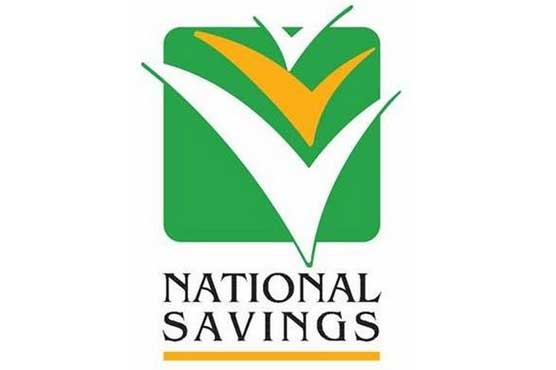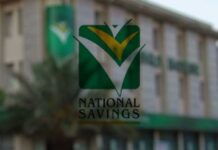
Zafar Masud is a career banker and finance expert of proven credentials in top positions in corporate and investment banking and cash management in Pakistan and foreign banks. Among other prominent positions, among other as former director of the SBP and regional managing director and CEO of the Barclays Bank, Masud presently is director general of National Savings – an organisation meant to serve the small savers and at the same time obtaining financing for the federal government.
In this assignment, Zafar Masud’s focus, in a rather difficult period with interest rates at the lowest ebb for decades, has been on digitisation, introducing new services and computerisation of savings centres.
National Savings is indeed a behemoth with an investor base of 7 million and a portfolio of USD 30 billion. In conversation with Profit, Zafar Masud gives a low-down on National Savings, the initiatives taken under him and also in the direction the organisation is headed.
The following are the excerpts.
Profit: How far has NS been successful in promoting the savings culture in Pakistan, with saving rates here still unfavorable as compared to the neighbouring South Asian nations, including India, Bangladesh and Sri Lanka?
Zafar Masud: In terms of mobilising savings in the country, NS is Pakistan’s leading institution but promoting the savings rate in the country is the collective responsibility of the entire financial sector, in particular the banks – and their failure has resulted in reduction in the savings rate in the country. Despite lower interest rate regime in Pakistan, National Savings has been meeting its targets regularly. National Savings is making efforts to mobilise savings by enhancing its customer services through introducing technological initiatives instead of relying on interest rate hike only. New products are in the pipeline to complement this endeavour.
Profit: Domestic savings have declined to less than 9 percent in recent years, despite its importance for sustainable growth. What measures has NS taken to increase domestic savings since foreign inflows are uncertain?
ZM: To enhance the savings mobilisation, National Savings has adapted a three-pronged strategy: First, access points, second, product portfolio and, third, product marketing and awareness.
Through access point initiatives, NS has expanded into the digital and key alternative delivery channels (ADCs) are being introduced to enhance the outreach and ensure the easy availability of its products. As for the product portfolio is concerned, NS is expanding its products base keeping in view both the financial inclusion and social safety net aspects. The products being introduced to ensure social safety net for specific segments are the extension of Behbood Certificates to the Persons with Disability and the launch of a separate scheme for the kin of the martyrs, including those from the security forces as well as the civilians. The welfare product designed in this regard is the Shuhada Family Welfare Account (SFWA). As for financial inclusion aspect is concerned, National Savings has designed products for two major sectors. These products for Overseas Pakistanis Savings Certificates (OPSCs) and Sarwa Islamic Savings Account (SISA), for those who desire to invest only in the Sharia-compliant schemes. Lastly, NS has stretched its marketing awareness initiatives and made its presence felt in the market through an effective use of the social and print media, and also digital channels .
Profit: Given the rate of inflation and returns, what saving rates do you anticipate in the next few years?
ZM: The NS rates are market based and directly linked with the T-Bills and PIB rates. As these rates increase, ours too would go up accordingly.
Profit: Of the products introduced by NS so far, which one are success stories? From a savings perspective, how four years of this government are different from that of the previous one?
ZM: As for the key success story, National Savings has emerged as an effective tool in [providing the] social safety net over the last decade. In 2003, National Savings introduced Behbood Savings Certificates and Pensioners’ Benefit Account (PBA) for specific segments of the society, including widows, seniors citizens and retired government servants. Both the schemes have grown tremendously over the last decade and currently contribute to about 30% in the total National Savings portfolio. Through these schemes, additional profit rate of about 2% is offered to support the most neglected and deserving sections of the society. The incumbent government has played a vital role in increasing the limit of investment from Rs3 to Rs5 million through its budgetary initiatives. This has helped not only fetch more investment but also supported the deserving sectors. Further, since the technological upgradation is the focus of the current government, it has helped National Savings at all levels to reform it from a manually operated organization to a financial institution having its own financial switches and payment gateways. The NS’ transformation and refashioning programme began in mid-2000 and is still continuing.

Profit: What are the challenges ahead to promote the savings culture in urban and rural areas alike?
ZM: Savings is a complicated subject. It has many moving parts and qualitative features including cultural aspects. The savings can’t be enhanced overnight. It’s a long drawn process which takes years of continuous effort to yield optimum results. The important element is that the realisation to harness savings exists both at the government level and otherwise.
In my opinion, savings is a habit which can mainly be inculcated in childhood. Therefore, there is need to develop specific school curriculum to promote savings, making financial markets bound to promote thrift and celebrating along with celebrating related events at national level.
Profit: Is the foreign investment coming in the wake of China Pakistan Economic Corridor (CPEC) likely to affect savings positively?
ZM: Well, there is no direct link as such, but with growth in the GDP and disposable income, the savings are bound to jump.
Profit: How can the banks help in unlocking household savings parked in real estate and precious metals and channelise them into investment?
ZM: People usually invest into different instruments based on the return and also safety of the principal. The foremost point is the regularisation and imposition of windfall tax in the real estate sector. This will provide a level playing field in the first place. In such an environment, banks would be in a position to diversify products, provide competitive returns and do marketing aggressively in the target areas to unlock household savings placed in other, under-utilised sectors. The focus on mobilisation of savings is lacking in the banking sector. They merely focus on promoting current account, thus losing sight on promoting savings. This situation must change to improve the savings to GDP ratio in the country.
Profit: As suggested by SBP, should private sector come up with attractive savings schemes in the areas of pensions, provident funds, gratuity, old age benefit schemes, especially in rural areas?
ZM: The private sector can only jump on the bandwagon when there is attraction in the market for it. In this, a tax rebate on these schemes by FBR might help the private sector to promote mobilisation. The aggressive participation of private sector to promote savings is the way to meet the optimal level in due course.
Profit: In the contemporary world of information technology, what measures have been taken so far to digitalise the national savings system?
ZM: As discussed earlier, National Savings’ current focus is the technology and digitisation. Over the period of last one and a half years, National Saving has achieved considerable progress in innovative and IT-based initiatives to transform the organization with the use of latest technology and through introduction of new products. National Savings has computerised and centralized its 223 National Savings Centers (NSCs) out of 376 total NSCs. A year before, there were only 48 computerized branches and none was connected to any centralised system. National Savings has recently established a computerised complaint resolution system through which complaints are monitored till their final resolution. Along with this, a state of the art Call Center has been established through which customers can register their complaints. Moving further into the digital era, National Savings has launched a non-financial version of mobile application called ‘Qoumi Bachat Digital’. National Savings is also launching a financial version of the mobile application along with card management system and mobile wallets. National Savings hired the services of various consultancy and technology firms for development, upgradation and improvement of its operations in order to deliver quality services to its valued clients. The services of PaySys Labs (Pvt.) Ltd/Access Consulting (Pvt.) Ltd were hired for upgradation of its main application system. With the help of Karandaaz Pakistan, the services A&M Consultants, LLC have been hired by Karandaaz, Pakistan for alternate delivery channels (ADCs). The World Bank is extending US$9.4 million financial support as part of the Financial Inclusion and Infrastructure Project to procure state-of-the art Core Banking System, ERP, Business Intelligence, etc. over a 5-year period.
Profit: What is the progress on automation of National Savings branches?
ZM: National Savings has successfully automated its 60% branches through its Automation Phases 1 and 2. It will soon automate its remaining branches in the Phase 3, which will lead to automation of all the branches. In this way, the whole system of the National Savings will be a click away with the help of its digitization initiatives by 2020.
Q: How are you attracting people towards your products keeping in view the low interest rates and weakening rupee turning investors away to more lucrative avenues?
ZM: National Savings provides 100% security to the investors, and new interest rate, in spite of the downward trend, does not affect old investments maintained at the higher rates. Furthermore, National Savings is moving fast from a manually operated organisation towards serving the investors through digital channels. On the product offering side too, National Savings is expanding its investment base by attracting overseas Pakistanis into its fold of investors. The proposed OPSCs will only be offered for overseas/non-resident Pakistanis and there will be no point in onshore investors ‘hoarding foreign currency’ in anticipation of the issuance of the proposed OPSCs.
Profit: As the data of first five months of this financial year shows, withdrawal from almost all categories of savings accounts has increased. How can the pace of withdrawal be controlled?
A: Over the last few months, the main exit in investments has been witnessed in 3 and 5 year tenure schemes since the profit rates of NSS are linked to the primary auctions of Pakistan Investment Bonds (‘PIBs’) and Treasury Bills (T-Bills) and in the last six months consecutive auctions, PIBs have been rejected. Due to this phenomenon, rates of NSS have remained unchanged for the last one year (last revised in February 2017) while the interest rates in the market, including the secondary market rates for PIBs, have increased. Thus, this temporary rate anomaly in the market and exodus of institutional investors from National Savings. National Savings through enhanced customer service delivery, use of technology based initiatives and new products will manage the outflow of investments. National Savings is making profound efforts to compete on the basis of customer service delivery instead of the profit rates only. National Savings has recently established a Computerized Complaint Resolution System through which complaints are monitored till their final resolution through a system generated tracking ID. Along with this, a state of the art Call Center has been established through which customers can register their complaints. Moving further into the digital era, National Savings has launched a non-financial version of mobile application called ‘Qoumi Bachat Digital’ which has enabled customers to view their profits, investments in the certificates and accounts, get notifications on the transactions, view transaction history and also save prize bond numbers to be searched in the Prize Bond draws. National Savings is launching a financial version of the mobile application along with Card Management System and Mobile Wallets for their esteemed investors within the next six months.
National Savings introduced Centralized Clearing House facility in January 2017 to the investors through which the cheque clearing time has been reduced from 7-10 days to only 1-3 days, and has allowed third-party payments from saving accounts in October 2017 using them as operating accounts like commercial banks which will help in retaining investments with CDNS and enhancing deposits in savings accounts (where outflow was Rs125 billion in CFY 2017-18).
There are at least four new products, including a Sharia Compliant product, Overseas Pakistanis Savings Certificates (‘OPSCs’) which are being launched in the next five months to help compensate for the reduction in existing interest rate sensitive schemes. The rate of return on the proposed certificates has not been finalised as yet. The products will only be issued once structure, launch plan and rules of the proposed certificates are formally approved by the finance division and the federal cabinet. Shuhadah Families Welfare Account and BSC for Persons with Disabilities were announced in the federal budget 2017-18 and are being launched in a record time.
Profit: What is the progress on planned Diaspora bond, which is being launched for attracting investments from the overseas Pakistanis?
ZM: OPSCs product of National Savings has travelled a long way in the shortest possible time. National Savings aim to launch OPSC,s in May 2018. In this regard, National Savings expedited the efforts and got the relevant documents prepared with the financial advisors. The OPSCs preliminary market research and product features report has been prepared, while the RFP for hiring the services of manager to the issue of OPSCs is also ready to be floated after certain internal approvals with the finance division.
Profit: What measures in your view could be the game changer for national savings in the next five years?
ZM: In my opinion, the game changer for National Savings over the next five years will be its digitisation. Because, visiting branches for financial transactions is becoming a thing of the past. Digitisation is the future, only.







Will on Digitisation work???? They should act to fulfill customers expectations by making saving schemes more attractive financially and emotionally to people.
Will only Digitisation work???? They should act to fulfill customers expectations by making saving schemes more attractive financially and emotionally to people.
Services may be extended six days a week so that the aged persons should get profit on saturdays also. At some places staff behaviour is uncalled for.they must observe courtesy.After all they will have to join this class one day.
Good step..!!
(Abbas bhai yari Faqpo skd na ena ju)
In ju
I was getting Rs 1400 on my deposit of Rs 2 million on my pension benefit account which is going to complete 10 years tenure. Although I have deposit of 5 million in PBA. With this decrease in profit my budget will b effected badly. Suggest deposit limit be enhanced to 7 million so that we can live a modest life. Thanks
Brother Sher Ali think of those who do not have additional 2m. Microfinance Bank offer higher return.
Comments are closed.